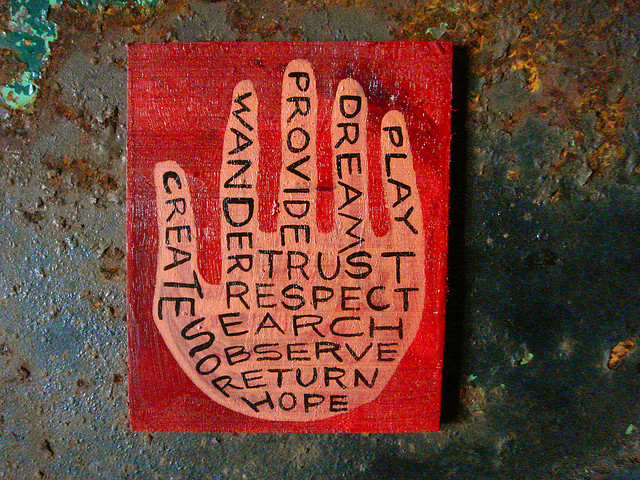A conviction is a strong and fixed belief; to be convicted is to be found guilty of something.
There is more than a semantic connection between belief and guilt. Whenever we believe we know something for sure in this uncertain, paradoxical world, we may be close to convicting ourselves or others of unpardonable crimes.
But it’s hard to live without convictions. Virtually everyone maintains strong convictions of what’s valuable, right or wrong, or just unpleasantly necessary in order to get through daily life.
Most of us also maintain fairly strong beliefs about who and what we are, what we’re doing here, and how people should behave (even if we sometimes have double standards for ourselves and others).
Finally, we hold onto convictions about what’s real, how the world and universe we perceive around us came to be, and who or what is in charge of it all (or not). The fact that there is so little consensus about ultimate convictions—meaning that billions of people hold vastly (and sometimes violently) different beliefs about reality itself—should be a compelling clue that all our convictions have a slippery relationship to truth. In fact, it may be our convictions about truth that conceal it from us.
Religion promises us a path to truth through faith and belief, but let’s not get started on the damage that warring religious convictions do in the world. Science ostensibly provides a path to truth that is free of belief, but even science has to start with certain premises or hypotheses—that is, testable beliefs. And the way that scientists choose to test their premises or beliefs is often subject to prior beliefs they are not fully aware of.
Chief among scientific presumptions is the conviction that material reality is self-evident and absolute. Scientists who explore premises and hypotheses outside this basic conviction often get called “paranormal” or “nutty” or other unpleasant epithets.
Another path to truth is the mystical search, which is distinguished by the attempt to undo our convictions themselves. That is why learning to forgive is a key skill in many mystical paths.
Forgiveness gradually and carefully relieves us of our dependence on believing, increasingly enabling us just to be. Then our actions can arise from an instinctive wisdom that draws from our practical knowledge, yet transcends our limited grasp of truth.
In a practiced, forgiving state of mind, our own convictions of who and what we are—and especially, how important we are—become less compelling, and thus we are less likely to get into large or small wars about right and wrong, good and bad, or the nature of reality.
Then, instead of “believing in God,” we are always stepping more deeply into the very heart of God —the unseen spiritual reality that animates us all. This reality lies beyond proof in the normal sense, but it can be sensed and demonstrated, even if it’s often evanescent.
Whenever love is extended and honored without prejudice or presumptions, we are transcending the convictions that tie us to isolation and misery, and living closer to truth.
Relephant Read:
10 Reasons why Buddhism is Better than your Religion.
Author: Patrick D. Miller
Editor: Renee Picard
Photo: denise carbonell/Flickr


 Share on bsky
Share on bsky





Read 0 comments and reply